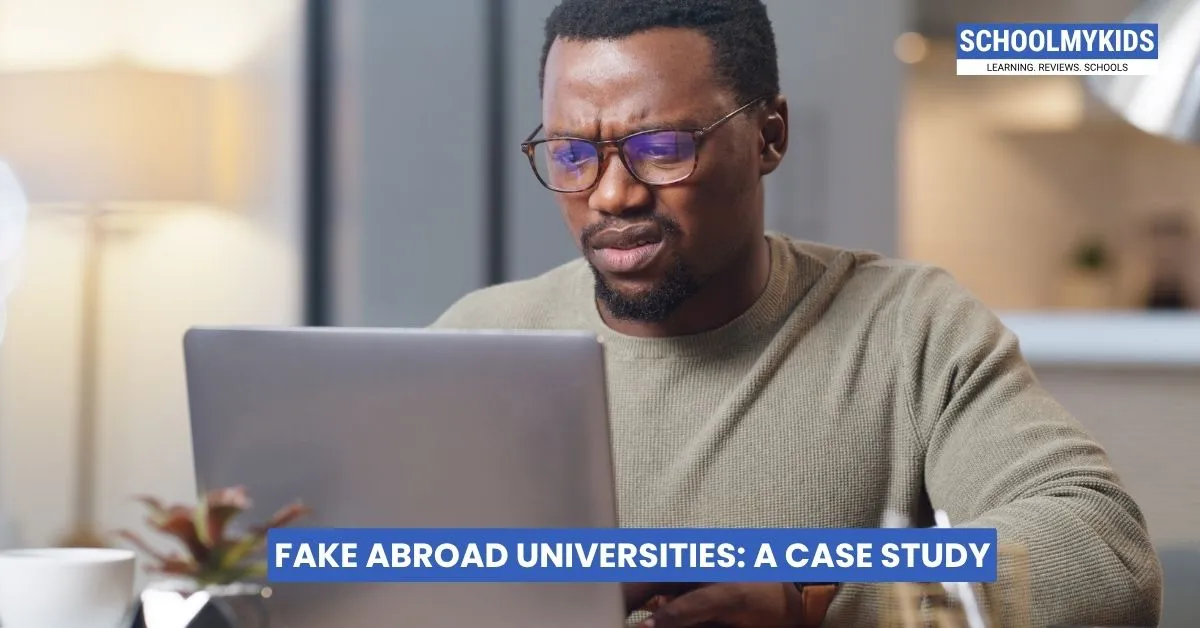The dream of securing an international degree is a powerful motivator for millions of Indian students. It represents a pathway to world-class education, global opportunities, and a better life. This immense demand, however, has also created a dark and predatory underworld of fake foreign universities, visa scams, and fraudulent agents who prey on this very dream.
These are not just substandard institutions; they are elaborate criminal enterprises designed to exploit loopholes in student visa regulations. To understand the devastating real-world consequences of these rackets, one needs to look no further than the cautionary tale of Tri-Valley University (TVU) – a name that has become synonymous with study-abroad fraud.
The Case Study: Tri-Valley University (TVU)
The Promise: A Gateway to the American Dream
On the surface, Tri-Valley University, based in Pleasanton, California, appeared to be a legitimate option for higher education. Its website projected the image of a private, Christian university offering postgraduate degrees in engineering, technology, and business. But its main attraction for students, particularly from India, was its ability to grant F-1 student visas and, crucially, its promise of immediate authorization for off-campus work through a program called Curricular Practical Training (CPT). For many, TVU seemed like the perfect, low-cost backdoor to living and working in the United States.
The Reality: A "Pay-to-Stay" Visa Mill
The reality was starkly different. Tri-Valley University was a sham. It had no real classes, no genuine curriculum, and no qualified instructors. Its address led to a nondescript office building, not a university campus. The U.S. government later described it as a "diploma mill" created for a single purpose: to enable foreign nationals (over 95% of whom were from India) to fraudulently acquire and maintain student visa status while they were actually working full-time, often in low-wage jobs, across the United States. Students paid thousands of dollars in "tuition fees" not for an education, but to keep their fraudulent visa status active.
The Modus Operandi
The scam, orchestrated by its founder, Susan Xiao-Ping Su, was methodical:
- Issue I-20 Forms: TVU issued the I-20 form, the primary document needed to apply for an F-1 student visa, to thousands of students, primarily in India.
- Charge "Tuition": Students were required to pay tuition fees of around $2,700 per semester via wire transfer to maintain the pretence of being enrolled.
- Falsify Records: The university would falsely report to U.S. immigration authorities that the students were attending classes on-site and maintaining their student status.
- Illegal Work Authorization: TVU illegally authorized students for CPT from their very first day, which is a gross violation of visa rules. CPT is strictly meant for practical training that is an integral part of an established curriculum, not as a general work permit.
The Takedown and the Aftermath
The Raid
In January 2011, the illusion came crashing down. Federal agents from U.S. Immigration and Customs Enforcement (ICE) raided the TVU office, seizing records and shutting down the entire operation. The investigation revealed that TVU was a multi-million dollar visa fraud scheme.
The Consequences for the Founder
Susan Xiao-Ping Su was arrested and, in 2014, was convicted on 31 counts, including visa fraud, wire fraud, money laundering, and alien harboring. She was sentenced to 16 years in federal prison and ordered to forfeit over $5.6 million in criminal proceeds.
The Devastating Impact on Indian Students
While the founder faced justice, the students were caught in a nightmare. Hundreds of Indian students, many of whom had taken huge loans to chase their American dream, instantly lost their visa status.
- They were interrogated by federal agents.
- Many were forced to wear radio-frequency ankle monitors as part of their release conditions.
- They faced deportation proceedings, and many were ultimately forced to leave the country.
- Their academic and professional careers were left in ruins, and the money they paid was lost forever.
While investigators argued that many students were willing participants in the "pay-to-stay" scheme, many were also victims of unscrupulous education agents in India who had misrepresented TVU as a legitimate university.
Lessons Learned: How to Avoid a Tri-Valley Trap
The TVU case provides critical lessons for every study-abroad aspirant:
- Verify Accreditation: Never take a university's claims at face value. Check if it is accredited by a recognised agency in that country (e.g., for the U.S., check the Council for Higher Education Accreditation - CHEA - website).
- Beware of Guaranteed Work: Be extremely suspicious of any institution that guarantees a job or full-time work permit from day one. This is a massive red flag for visa fraud.
- Investigate the Campus: Use Google Maps and Street View to look at the physical address. A real university has a real campus, not just a two-room office.
- Trust Official Sources: Rely on official government resources like the EducationUSA network (run by the U.S. State Department) for authentic information, not just private agents.
Conclusion: The Dream Requires Due Diligence
The Tri-Valley University scandal remains a stark reminder that the path to an international education is filled with potential pitfalls. The dream of studying abroad is a valid and achievable one, but it demands rigorous research, skepticism, and a commitment to due diligence. A student's best defence against becoming a victim of fraud is to be informed and to trust only official and verified sources. A few hours of careful research can save you from a lifetime of regret.








Be the first one to comment on this story.